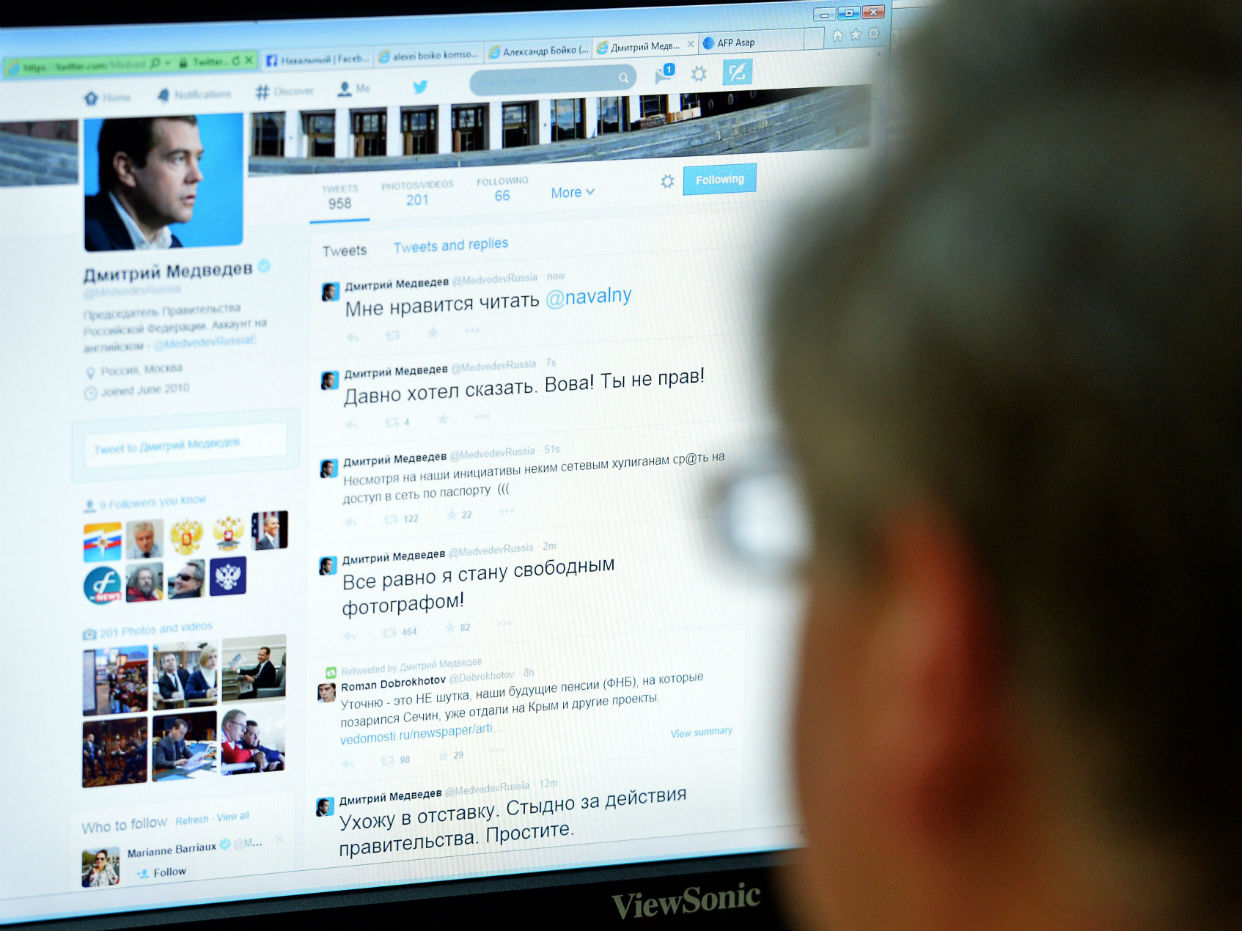Online abuse: Five things we learnt about trolling
Around 10,000 abusive tweets were sent over three weeks, with half of them from women, says report

A free daily email with the biggest news stories of the day – and the best features from TheWeek.com
You are now subscribed
Your newsletter sign-up was successful
A study released by think-tank Demos has revealed the "staggering scale" of abusive messages communicated through social media.
Over three weeks, 6,500 UK Twitter accounts were targeted by 10,000 explicitly aggressive and misogynistic tweets, said the report.
The research has been released as part of the Reclaim The Internet campaign, launched by Labour's Yvette Cooper along with her party colleague Jess Phillips, former Liberal Democrat MP Jo Swinson and former Conservative minister Maria Miller.
The Week
Escape your echo chamber. Get the facts behind the news, plus analysis from multiple perspectives.

Sign up for The Week's Free Newsletters
From our morning news briefing to a weekly Good News Newsletter, get the best of The Week delivered directly to your inbox.
From our morning news briefing to a weekly Good News Newsletter, get the best of The Week delivered directly to your inbox.
"Forty years ago, women took to the streets to challenge attitudes and demand action against harassment on the streets. Today the internet is our streets and public spaces," Cooper told The Guardian.
[[{"type":"media","view_mode":"content_original","fid":"95413","attributes":{"class":"media-image"}}]]
Alex Krasodomski-Jones, a researcher at the Centre for the Analysis of Social Media at Demos, said the study was "a stark reminder that we are frequently not as good citizens online as we are offline". He added: "While we have focused on Twitter, who are considerably more generous in sharing their data with us, it's important to note misogyny is prevalent across all social media."
Here are five things we learnt from the study.
A free daily email with the biggest news stories of the day – and the best features from TheWeek.com
Half of misogynistic tweets are from women
The study found that internationally, 200,000 aggressive tweets using the words "slut" and "whore" were sent to 80,000 people and that 50 per cent of them were sent by women.
Famous faces under attack
Celebrities are among the most frequent targets for abuse, says the Guardian. US rapper Azealia Banks, TV personality Katie Hopkins and Democratic presidential hopeful Hillary Clinton were targeted the most during the research period.
And teachers, too
Teaching union NASUWT, which is backing the campaign, says teachers are being increasingly coming under attack online. Half of the 1,300 teachers questioned in a survey said they had been targeted on social media in relation to their work. More than half of those who had suffered said the abuse had come from parents, an increase from 40 per cent in 2015.
Thousands seeking help over revenge porn
The Revenge Porn Helpline said it has received almost 4,000 calls in the last year, from people as young as 11, The Independent reports.
Facebook in the dock
Facebook expressed its backing for Reclaim the Internet but "acknowledged that it does not always take down misogynistic comments", according to the Guardian.
Twitter says that "hateful conduct" is a violation of its terms of service and that, along with its policies and user controls, it works with civil society leaders and academic experts to "understand the challenge that exists".
-
 Why is the Trump administration talking about ‘Western civilization’?
Why is the Trump administration talking about ‘Western civilization’?Talking Points Rubio says Europe, US bonded by religion and ancestry
-
 Quentin Deranque: a student’s death energizes the French far right
Quentin Deranque: a student’s death energizes the French far rightIN THE SPOTLIGHT Reactions to the violent killing of an ultraconservative activist offer a glimpse at the culture wars roiling France ahead of next year’s elections
-
 Secured vs. unsecured loans: how do they differ and which is better?
Secured vs. unsecured loans: how do they differ and which is better?the explainer They are distinguished by the level of risk and the inclusion of collateral
-
 Epstein files topple law CEO, roil UK government
Epstein files topple law CEO, roil UK governmentSpeed Read Peter Mandelson, Britain’s former ambassador to the US, is caught up in the scandal
-
 Iran and US prepare to meet after skirmishes
Iran and US prepare to meet after skirmishesSpeed Read The incident comes amid heightened tensions in the Middle East
-
 Grok in the crosshairs as EU launches deepfake porn probe
Grok in the crosshairs as EU launches deepfake porn probeIN THE SPOTLIGHT The European Union has officially begun investigating Elon Musk’s proprietary AI, as regulators zero in on Grok’s porn problem and its impact continent-wide
-
 Israel retrieves final hostage’s body from Gaza
Israel retrieves final hostage’s body from GazaSpeed Read The 24-year-old police officer was killed during the initial Hamas attack
-
 China’s Xi targets top general in growing purge
China’s Xi targets top general in growing purgeSpeed Read Zhang Youxia is being investigated over ‘grave violations’ of the law
-
 Panama and Canada are negotiating over a crucial copper mine
Panama and Canada are negotiating over a crucial copper mineIn the Spotlight Panama is set to make a final decision on the mine this summer
-
 Why Greenland’s natural resources are nearly impossible to mine
Why Greenland’s natural resources are nearly impossible to mineThe Explainer The country’s natural landscape makes the task extremely difficult
-
 Iran cuts internet as protests escalate
Iran cuts internet as protests escalateSpeed Reada Government buildings across the country have been set on fire